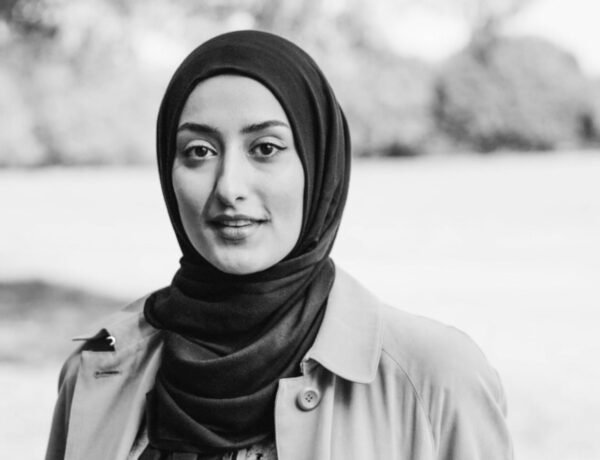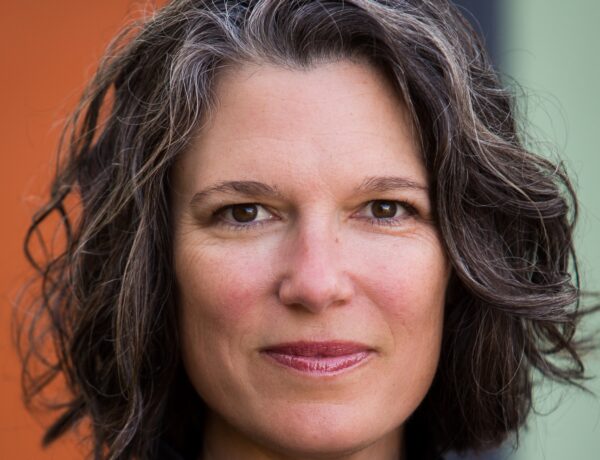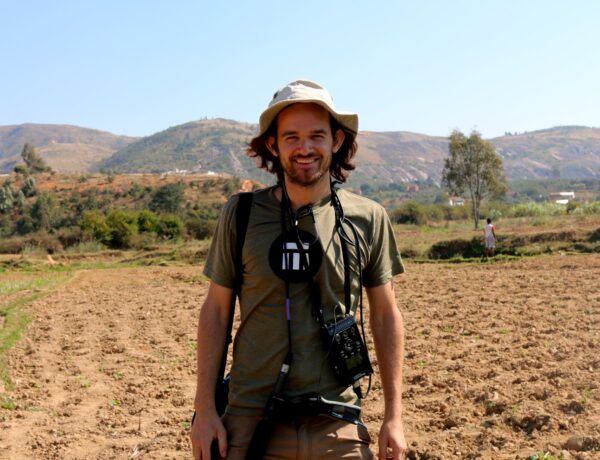Ankita Anand is an award-winning independent journalist and editor based in Delhi. She has received several awards, including the European Commission’s Lorenzo Natali Media Prize, the Statesman Award for Rural Reporting, and the UNFPA-Laadli Media Award.
Her work has been supported by grants and fellowships from various organizations such as One World Media, Climate Tracker, and the Sanskriti Foundation. She has also contributed to Tactical Tech’s Exposing the Invisible Kit for investigators and has co-produced an investigative podcast for iHeartRadio. Ankita was named a Changemaker by Thomson Reuters Foundation in 2021 for promoting gender-sensitive reporting.
Each week, we publish a new daily writing routine from a famous author. Subscribe to our newsletter so you don’t miss out!
Hi Ankita, welcome to Famous Writing Routines, we’re so glad to have you here with us today! You have a rich and diverse background in journalism, activism and creative writing. Can you tell us a little bit about your journey and how you got into journalism?
I grew up in small towns where books were scarce, and I was hungry for stories. When I was nine or ten, I started borrowing comics from a vendor at the railway station. My girlfriends in school and I started our own storytelling circle. I put in the blender a few of the graphic tales of blood and gore I had been reading, and came up with some sensationalist stuff. I wasn’t very proud of my rehash but then I got a chance to try my hand at poetry for a class assignment.
My English teacher’s high praise kept me going, and soon I was using my uncles’ A4 sheets to write cover letters requesting the local paper to consider my poetry. Their acceptance provided further encouragement, and I churned out some short stories, more monochromatic ones this time.
I was all set to win the Booker my mother had been goading me to procure. But coming to Delhi for my college made me feel that my choice of profession was not noble enough. The stark inequalities of the big city – and probably a “save the world” trauma response – pushed me into activism.
A few years later I felt that activism involved a lot of telling people what to do, while I wanted to learn and listen more (I didn’t know what to do!). I wished to discover things for myself, slowly understand them, and share it with others for their own interpretation. That’s how I walked into journalism.
You have a focus on gender, labor, climate, environment, land, corruption, human rights, and indigenous communities. What inspired you to choose these topics and how do you approach reporting on them?
As a girl child, an adolescent, and then as a woman, the imbalance of power between me and anyone who abused/harassed me was infuriating. I raged against a system that colluded with perpetrators in shaming us. Choosing these topics might have been an attempt at taking my power back. Being a woman, I also share a sense of solidarity with any community facing violations, though I have relative class and caste privilege in India.
I was raised by my grandparents. During vacations we used to travel to their villages. I wanted to relive that connection, and many of these topics gave me the opportunity to travel to far-flung villages.
Before reporting, I go through the work that has already been done on the subject. That gives me an idea of the history, the background, potential interviewees, and the questions that still remain unanswered. This saves me from repeating a story that has already been written.
I then start contacting the sources I know in the area who could lead me to the people I would like to interview, and help access the sites I would like to visit. Prior to the trip, I prepare my questions, while being ready for the fact that what I discover might turn on its head everything I know or assume about the subject.
As an editor with Unbias the News, how do you approach balancing impartiality and objectivity with a focus on advocacy for marginalized communities?
We announce our bias in our editorial manifesto; we are “anti-racist, feminist, pro-democracy”. In commissioning our stories, we favor local journalists from Majority World countries and oft-neglected communities.
Rather than parachuting, we encourage cross-border collaboration. These biases are necessary to correct the skewed perspectives with which a lot of the Western media projects “the others”. But when it comes to the reporting itself, we follow fact-based reporting that takes into account all the stakeholders.
You have been a part of several collaborations with people using different media, formats, and genres. Can you share some of your experience working in these collaborative projects and what you have learned from them?
Glennon Doyle’s reminder is my constant chant during collaborations: “We can do hard things.” To work with people across time zones, temperaments and formats is a challenge for all involved. But each time I look at the outcome I know there is no way a lone journalist could have pulled it off.
I have also earned some friends for life. When reporting from Zimbabwe, our grant money was stuck in the local bank for days. Such impediments are a test of whether you turn towards or against each other as a team. Since we did not have the cash needed to pay for cabs, my colleague and I used to walk from our hotel to conduct interviews. During those long walks through Harare, we had some deeply engaging conversations. We are still in touch and hope to work together again.
Do you struggle to stay focused while writing? You’re not alone! That’s why Famous Writing Routines recommends Freedom – the ultimate app and website blocker for Mac, Windows, Android, iOS, and Chrome. With over 2.5 million users, Freedom helps writers stay on task and avoid distractions. Get started for free today and reclaim your productivity!
As a journalist whose work has been supported by grants and fellowships from various organizations such as One World Media, Clean Energy Wire, The Rules, and others, can you tell us about the impact these organizations have had on your work and how they have helped in furthering your reporting?
Without these grants and fellowships, it would have been even rougher as an independent journalist. They helped me travel, focus on a subject, and do deep dives. The grants took care of my expenses for a slightly longer period than one-off assignments did. A couple of the most important things I received were mentorship and introduction to my peers in the field.
I am so grateful to the Internet because almost all such opportunities came from there. For the constant browsing, I had the luxury of time because I had quit my editorial job with Penguin. In the first year of being a freelance journalist, I had some financial privilege too because I was living in my parents’ house.
Getting fellowships and grants is a numbers game. So far, if I include all pitches in all genres, I have rejections from 637 places, not to mention the ones I wrote to multiple times. I wear them as a badge of honor because it inspires me to be just as stubborn with anything else I desire.
You have contributed to Tactical Tech’s Exposing the Invisible Kit for investigators, including a guide on collaborative investigations. Can you tell us about this project and what your role was in it?
In 2018, Tactical Tech had organized an investigative toolkit residency in Montenegro. I was a part of it where I contributed to chapters on how to conduct interviews and manage sources.
Next year I was facing a challenging collaborative investigation. I did not want to let the frustration eat at me. So I started writing down my learnings in order to do better in future. This came up in a discussion with Tactical Tech members, and they asked me to write an entire guide on it.
As a poet and writer, how do you balance your creative writing with your journalism and activism? Do you see a connection between these two sides of your work?
I deliberately moved away from activism when I became a journalist so as to avoid any conflict of interest. I continued some work in the arts in education field, and I ran a campaign related to sensitive reporting of sexual violence.
My days as an activist gave me a better understanding of sociopolitical issues, which came in handy in journalism. That’s when I first got trained on executing fact-findings, which also follow the principles of ground reporting.
Poetry and personal essays made me more observant, self-aware, and compassionate. I tried to be the same when reporting. Journalism helped me travel, and the variety of encounters I had lent themselves to my other forms of writing.
Can you tell us about your reporting routine? What does a typical day look like for you?
When I report, I am completely at the mercy of my sources and interviewees. It could mean starting at the crack of dawn and ending at midnight.
When I return home to put the notes together, I am different every day, and so is my schedule. Growing up in chaos, my body acquired the need to be soothed first before it could be brought to focus on work. So I often start my days with a book or watching some show or movie online. After all kinds of therapy, healing and journaling sessions, my nervous system is more regulated now. I actually look forward to getting up and working without bribing myself.
If you could have a conversation with any author throughout history about their writing routine and creative process, who would that person be?
I would have listened awestruck to Toni Morrison reveal her trade secrets.
I’d love to know about the books you’re reading at the moment. What have been some of your favorite recent reads?
I am reading In the Realm of Hungry Ghosts by Gabor Maté. The First Woman by Jennifer Nansubuga Makumbi and The Housekeeper and the Professor by Yōko Ogawa are another couple of blessings that I found recently.
What does your current writing workspace look like?
It looks like a bed with a foldable table and a laptop. A book, a to-do diary, a meeting-minutes writing pad, a journal, and a life-lessons notebook populate the other side of the bed.
Affiliate disclaimer: Some links on this website are affiliate links. We may earn a small commission if you make a purchase through these links, but only promote products we truly believe in. We disclose affiliate links and give honest reviews.



No Comments